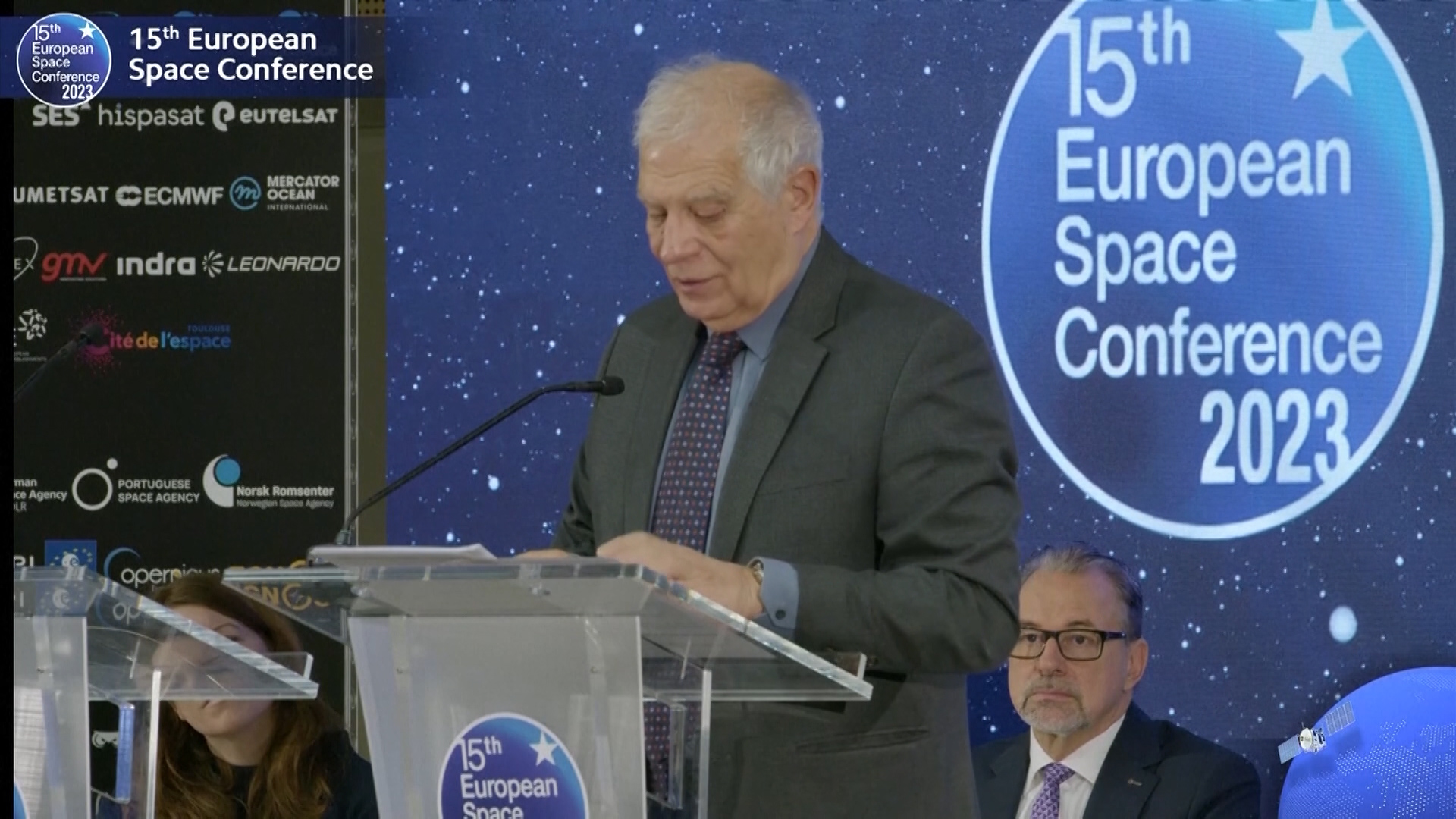
The EU's chief foreign policy advisor described space as a battlefield at the conference. /CGTN Europe
The EU's chief foreign policy advisor described space as a battlefield at the conference. /CGTN Europe
Europe's space industry is narrowing its focus as Earth's increasingly crowded ionosphere, where the atmosphere meets space, becomes a key battleground for nations and private companies alike.
Key players met at the European Space Conference on Tuesday for a two-day summit geared towards securing the future of Europe in space.
The EU's top diplomat, Josep Borrell, said that "space will become a kind of battlefield: at least, a place where competition and confrontation will take place," in the conference's opening remarks.
READ MORE
Why does Ukraine want Western tanks?
Bosnia's river of rubbish
The Secret Betrayal: China's WWII sailors
While Europe has had flagship extraterrestrial success with projects like the Galileo navigation satellite systems and the Copernicus monitoring program, recent projects, like the failed launch of the Vega-C rocket in December 2022, embody the challenges faced by the industry.
The European Space Agency's Director General, Josef Aschbacher, told the Associated Press that reestablishing European access to space was his top priority.
"Having three failures in two years is not good and this is something where we really need to look into, how we need to change some of the practices or quality management processes that we have in place, to make sure Vega-C gets back on the launchpad," said Aschbacher.
In the meantime, the European Space Agency (ESA) will be forced to turn to competitors like Elon Musk's Space X for its launches.
"We may need an interim solution in the next one, or maybe maximum two years," added Aschbacher.
02:39

A few days prior to the conference, Aschbacher had also said that the ESA would continue to send astronauts to the International Space Station but could not crew launches to China's Tiangong station.
But small European companies have provided a glimmer of hope for the continent's space efforts.
NanoXplore, a French start-up specializing in carbon and graphite product development, was able to develop the first Europe-made FPGA, a semiconductor device adapted for use in space.
"People really understand the importance of space in Europe – that it will become a very competitive market and we need to move fast," said the company's Managing Director, Edouard LePape. "When we decide to do something, we can achieve what we want. As soon as we realize that space is critical, I'm very confident that we'll be competitive going forward."
European institutions and individual states will be expected to invest large sums of money in bolstering the continent's efforts. Despite the huge sums involved, the ESA's Director of Communications, Philippe Willekens, says it is money well spent.
"It produces something, it produces services that you don't even think about anymore, like the Galileo signal that you have on your mobile phone anywhere on the planet," said Willekens.
"If you want to move somewhere, and we're going to be even more accurate in the future, you know which sidewalk you're on."
While the coming years will be fraught with difficulty and increased competition, the European space industry was united in sending a clear message that it is up to the challenge and that Europe will remain a major player for the foreseeable future.